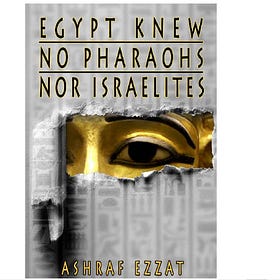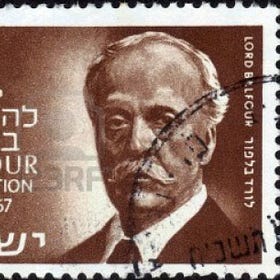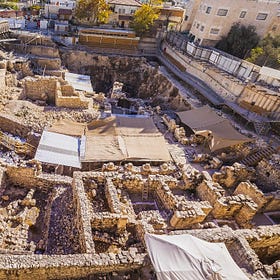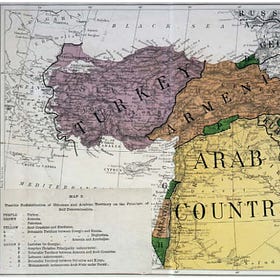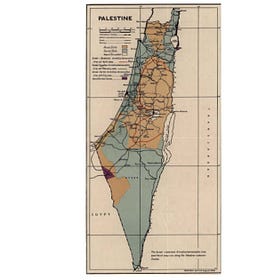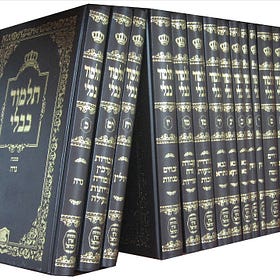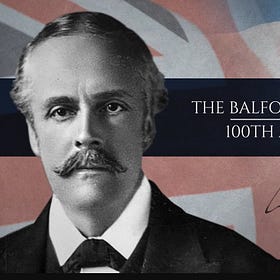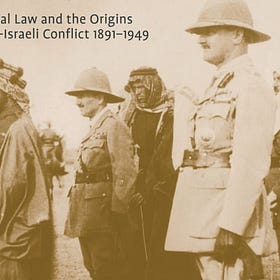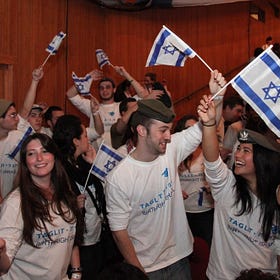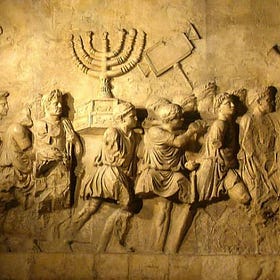INDEX PAGE for our Anti-Semitism Project
A small sized population claim a certain Religious Heritage, and they get singled out as a people of scorn. Hate goes dormant, but then comes alive again throughout history. WHY IS THAT?
Something builds disdain rather than building respect.
I WOULD LIKE TO APPROACH ANTI-SEMITISM FROM MANY DIFFERENT ANGLES. I don't know if I can do it? This will be the start of a series that will expand, (even over the year). When some new circumstances becomes evident, I will try to write about it. (Links are down below.)
A book that I will later feature, written by Shlomo Sand, was originally written in Hebrew. Let’s see what an Israeli has to say. Here's how he introduces it:
My mother tongue is actually Yiddish, but Hebrew has remained the language of my imagination, probably of my dreams and certainly of my writing. I chose to publish the book in Israel because initially my intended readers were Israelis, both those who see themselves as Jews and those who are defined as Arabs. My reason was simple enough: I live in Tel Aviv, where I teach history.
When the book first appeared in early 2008, its reception was somewhat odd. The electronic media were intensely curious, and I was invited to take part in many television and radio programs. Journalists, too, turned their attention to my study, mostly in a favorable way. By contrast, representatives of the "authorized" body of historians fell on the book with academic fury, and excitable bloggers depicted me as an enemy of the people. Perhaps it was this contrast that prompted the readers to indulge me—the book stayed on the bestseller list for nineteen weeks.
To understand this development, you have to take a clear-eyed look at Israel and forgo any bias for or against. I live in a rather strange society. As the closing chapter of the book will show—to the annoyance of many book reviewers—Israel cannot be described as a democratic state while it sees itself as the state of the "Jewish people," rather than as a body representing all the citizens within its recognized boundaries (not including the occupied territories). The spirit of Israel's laws indicates that, at the start of the twenty-first century, the state's objective is to serve Jews rather than Israelis, and to provide the best conditions for the supposed descendants of this ethnos rather than for all the citizens who live in it and speak its language. In fact, anyone born to a Jewish mother may have the best of both worlds—being free to live in London or in New York, confident that the State of Israel is theirs, even if they do not wish to live under its sovereignty. Yet anyone who did not emerge from Jewish loins, and who lives in Jaffa or in Nazareth will feel that the state in which they were born will never be theirs.
Yet there is a rare kind of liberal pluralism in Israel, which weakens in times of war but functions quite well in peacetime. So far it has been possible in Israel to express a range of political opinions at literary events, to have Arab political parties take part in parliamentary elections (provided they do not question the Jewish nature of the state), and to criticize the elected authorities. Certain liberal freedoms—such as freedom of the press, of expression and of association—have been protected, and the public arena is both variegated and secure. That is why it was possible to publish this book, and why its reception in 2008 was lively and aroused genuine debate.
Furthermore, the tight grip of the national myths has long been loosened. A younger generation of journalists and critics no longer echoes its parents' collectivist ethos, and searches for the social models cultivated in London and New York. Globalization has sunk its aggressive talons into the cultural arenas even in Israel and has, in the process, undermined the legends that nurtured the "builders' generation." An intellectual current known as post-Zionism is now found, though marginally, in various academic institutions, and has produced unfamiliar pictures of the past. Sociologists, archaeologists, geographers, political scientists, philologists, and even filmmakers have been challenging the fundamental terms of the dominant nationalism.
But this stream of information and insights has not reached the plateau on which resides a certain discipline, called "The History of the Israelite People" in Hebrew academies. These institutions have no departments of history as such, but rather departments of general history—such as the one I belong to—and separate departments of Jewish (Israelite) history. It goes without saying that my harshest critics come from the latter. Aside from rioting at minor errors, they chiefly complained that I had no business discussing Jewish historiography because my area of expertise is Western Europe. Such criticism was not leveled against other general historians who tackled Jewish history, provided they did not deviate from the dominant thinking. "The Jewish people," "the ancestral land," "exile," "diaspora," "aliyah," (the immigration of Jews into Israel), "Eretz Israel," "land of redemption" and so forth are key terms in all reconstructions within Israel of the national past, and the refusal to employ them is seen as heretical.
I was aware of all this before I began writing this book. I expected my attackers to claim that I lacked a proper knowledge of Jewish history, did not understand the historical uniqueness of the Jewish people, I was blind to its biblical origin, and I denied its eternal unity. But it seemed to me that to spend my life at Tel Aviv University amid its vast collection of volumes and documents about Jewish history without taking time to read and tackle them would have been a betrayal of my profession. Certainly it is pleasant, as a well-established professor, to travel to France and the United States to gather material about Western culture, enjoying the power and tranquility of academe. But as a historian taking part in shaping the collective memory of the society I live in, I felt it was my duty to contribute directly to the most sensitive aspects of this task.
Admittedly, the disparity between what my research suggested about the history of the Jewish people and the way that history is commonly understood—not only within Israel but in the larger world—shocked me as much as it shocked my readers. Generally speaking, educational systems teach you to begin writing only after you have finished your thinking—meaning that you should know your conclusion before you start writing (that was how I obtained my doctoral degree). But now I found myself being shaken repeatedly as I worked on the composition. The moment I began to apply the methods of Ernest Gellner, Benedict Anderson and others, who instigated a conceptual revolution in the field of national history, the materials I encountered in my research were illuminated by insights that led me in unexpected directions.
I should emphasize that I encountered scarcely any new findings—almost all such material had previously been uncovered by Zionist and Israeli historiographers. The difference is that some elements ✓had not been given sufficient attention, others were ✓immediately swept under the historiographers' rug, and still others were ✓"forgotten" because they did not fit the ideological needs of the evolving national identity. What is so amazing is that much of the information cited in this book has always been known inside the limited circles of professional research, but invariably got lost en route to the arena of public and educational memory. My task was to organize the historical information in a new way, to dust off the old documents and continually reexamine them. The conclusions to which they led me created a radically different narrative from the one I had been taught in my youth, growing up in the Israeli school system.
Unfortunately, few of my colleagues—the teachers of history in Israel— feel it their duty to undertake the dangerous pedagogical mission of exposing conventional lies about the past. I could not have gone on living in Israel without writing this book. I don't think books can change the world, but when the world begins to change, it searches for different books. I may be naive, but it is my hope that the present work will be one of them.
Tel Aviv, 2009
Today I found the book, EGYPT KNEW NO PHARAOS NOR ISRAELITES
Dr. Ezzat has written extensively in Arabic tackling many issues and topics in the field of Egyptology and comparative religion. Written in English his latest thought-provoking book is “Egypt knew no Pharaohs nor Israelites”. I cannot verify any of this.
1. Notes on what this Anti-Semitism Thread is about?
I don't know if I can find understanding better than anyone else. And I don't know if the few people reading this site would make any difference if I did. Many Jewish people are very creative and add to our society in the arts and sciences. Other Jewish people are found in high places of world power, (financial, political, etc. etc.). They lead us in c…
2. The Anti-Semitism Reality
There are people that choose Judaism or were born into it. But they can also opt out of it. I WOULD LIKE TO APPROACH ANTI-SEMITISM FROM MANY DIFFERENT ANGLES. I don't know if I can do it? This will be the start of a series that will expand, (even over the year). When some new circumstances becomes evident, I will try to write about it.
3. Excerpt from Shlomo Sand, “Invention of Jewish People”, part of Chap 2
6,800 words (getting more like our book posts in length). First I’ll say that I don’t know exactly from where to continue our exploration. I have two books by Shlomo Sand who was raised and educated in Israel, (in the army etc.) and now teaches history for 30 or more years at the University of Tel Aviv. I want to start with something interesting, so I …
4. Here is a full Chronology of Palestine, 1517 – 1949, with some original maps.
It is good to consult this as a reference. 1517 Palestine is conquered by Turkey and becomes an integral part of the Ottoman Empire. 1791 On December 23, 1791, Catherine II (“the Great”), the empress of Russia, authorized the creation of the Pale of Settlement, an area in the western part of the empire in which Jewish subjects would be required to reside.…
5. Introduction: From "Coexistence to Conflict", Victor Kattan
Victor Kattan was born in Khartoum, Sudan in 1979 to a Palestinian father and British mother. He graduated with an LL. B (Hons) from Brunel University in 2001, an LL. M from Leiden University in 2002, and is currently pursuing his Doctorate at the School of Oriental and African Studies (SOAS), (in 2009) University of London, for which he was awarded a s…
Here is a post about the Jewish Talmud and a link to a book that reads key parts of it. On chapter has been transcribed. Interpreting these texts depend on you contextual reference. If you conclude that they were a necessary part of building an ancient creed, that may be true. But if you think they are word-for-word what must happen in the future, it is very scary.
6. The 'Judaic-Christian tradition' and 'common values of the monotheistic religions'
If you read something that you consider (by your judgement), as criticizing; you might call it anti-Semitic. But if you're reading it in the Jewish Talmud; that's just the way that it is. One people's judgements are not based on any "universal standards" of another people's judgements. Even their nervous system and emotional contents are wired diff…
7. REMEMBERING AND FORGETTING THE "PEOPLE OF THE LAND"
(3,500 words, taken from a book by Shlomo Sand.) Just a reminder of what we are doing. We are investigating the justification for why Europeans (the Jewish), moved to Palestine and appropriated their land. The “rights” the Zionists claimed depended on three things.
8. Zionism and the Return to Palestine was a “Dead Idea” by the 19th Century.
{Footnotes are at the end of each section. I suggest opening on two tabs, and following the notes as you read.} About 7,000 words without the footnotes. Please remember, this library publishes books, not articles. There is a Biblical prophecy that we say ALL Jewish people Yearned for. But without British colonialism, there would be NO Israel today. …
9. JEWISH OPPOSITION TO POLITICAL ZIONISM
[This is a segment from Victor Kattan, “From Coexistence to Conquest”, toward the end of chapter two, 5,000 words. Please follow the footnotes attached at the end, they give additional information.] In post #8 we saw that the Jewish who were attracted to emigrate to Palestine were very small in numbers. (We said people vote with their feet. How many J…
10. EVERY HUMAN BEING HAS A STORY
[This is one of the most moving reads in this series. 10,000 words, first half the stories, second half, their views of the current Israeli state.] It is no secret that scholarly research is often motivated by personal experiences. These experiences tend to be hidden beneath layers of theory; here some are proffered at the outset. They will serve the au…
11. Where will a balanced Voice of a possible future for Israel be heard?
At one time I said that all societies are based on myth and all myths have a toxic corner that has the potential to re-infect the whole. I was writing about the politics of proxy Hate. We know of many researchers who are finding all the impossibilities in ancient Hebrew writings (scriptures), and claiming these are the causes of anti-Semitism, and the…
Let this be post 12.
https://library4conciliation.substack.com/cp/146268623
13. The Jewish Diaspora supports a Jewish Ethnic State
[It may be only a proposal, but I think an obvious statement. Where does Israel get world-wide support? It is the Jewish Diaspora that finds its identity in a Jewish ethnic state. But they don’t have to live through the conflictual turmoil. In this way, they also have a proxy to do the dirty work. In a way, the Diaspora are also the most anti-Semit…
14. Jewish Thread; Guest Opinion piece, some possibilities need to be said directly, that’s my Hypothesis.
(1,800 words) Here we are in an anti-Semitism thread, but on the face of it is a war thread. That is because you can’t think of anti-Semitism these days without acknowledging the huge loss of life within Israel and Gaza, and that those losses are skewed heavily in what we used to call “collateral damage”, that is, killing of non-combatants. Or killing o…


